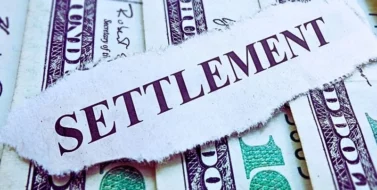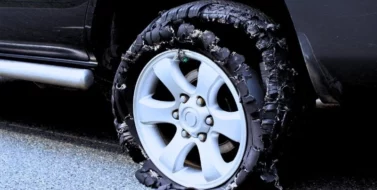Figuring out who is liable for a hit and run accident is more complicated than in a traditional car accident case. Illinois state law requires drivers to remain at the scene of any accident they are involved in. Unfortunately, many drivers leave the scene before law enforcement can arrive. This complicates matters for victims who sustain losses in the wake of an accident.

Car accident victims are legally allowed to recover compensation for their medical bills, lost wages, and pain and suffering from an at-fault driver’s insurance company. Hit-and-run accident victims can be left wondering what steps they can take to acquire compensation when they have no driver to hold accountable. Fortunately, victims of hit-and-run accidents still have options for obtaining coverage.
Recovering compensation following a Chicago hit-and-run accident can be difficult. Victims may improve their experience by knowing what to do after the accident occurs and hiring a lawyer.
Table of Contents
Am I Covered if My Car Was Damaged in a Hit-and-Run?
Hit-and-run accident victims have limited options for recovering damages. First, accident victims can file a claim against the at-fault driver should he or she be found. In this case, a traditional car insurance claim would be used to proceed with the process of recovering damages.
If an at-fault driver is not located, the victim will need to file a claim with his or her own underinsured/uninsured motorist insurance coverage. Accident victims in Illinois should meet standard requirements for car insurance plans that cover such accidents.
Claims Against an Identified At-Fault Driver
When an at-fault driver is identified, victims may recover different types of compensation. This compensation is paid out directly from the driver’s insurance company through a third party claim. Victims have a two-year statute of limitations to file a civil lawsuit against an at-fault driver.
When No At-Fault Driver Present
Uninsured/underinsured motorist coverage is required for all Illinois auto insurance policies. When the at-fault driver can’t be found, hit-and-run accident victims file this claim through their own insurance provider. The uninsured motorist claim must be filed within a two-year limit to meet the statute of limitations requirement in Illinois.
Who Is Liable in a Hit-and-Run Accident?
Adding up the losses caused by a hit-and-run accident is often much easier than figuring out who is financially responsible for them. Determining liability can become difficult when an at-fault driver flees the scene of an accident.
In a hit-and-run accident, the liable party is the driver who caused the collision. This is typically also the driver who fled the scene without stopping to identify himself or herself, or render aid to injured parties. If someone is involved in a car accident and they leave the scene without fulfilling their legal obligations, they are considered to be engaged in a hit-and-run.
In hit-and-run cases, the liable driver can face serious legal consequences, which may vary depending on the jurisdiction and the circumstances of the accident. Common penalties for hit-and-run drivers include fines, license suspension or revocation, and even imprisonment, especially if the accident resulted in significant injuries or fatalities.
Why Do Drivers Flee the Scene of an Accident?
It is a criminal act to leave the scene of an accident in Illinois. Most frequently, drivers leave accident scenes that involve serious injuries or fatalities. Drivers often leave the scene because they panic or fear legal consequences. Standard explanations of why drivers hit-and-run in Chicago include intoxication, distracted/negligent/intentionally reckless driving behaviors, invalid coverage or licensing, and lack of documentation.
Intoxication
When an intoxicated driver hits another individual, he or she may flee the scene due to fear of the criminal penalties for driving under the influence (DUI).
Distracted, Negligent, or Intentionally Reckless Driving Behaviors
These actions include any cognitive, manual, and visual actions that take a driver’s full attention away from the task of driving. Negligent driving may include failing to yield, running a red light or stop sign, and speeding. Intentional driving behaviors involve acting aggressively toward other drivers. A driver may knowingly commit these acts, and flee the scene of an accident he or she caused to avoid legal repercussions.
Invalid coverage or licensing
An at-fault driver may not have valid insurance coverage or a valid driver’s license. This means he or she is illegally operating a motor vehicle. When an accident occurs, he or she may feel pressured to flee the scene to avoid the consequences.
Lack of documentation
If an at-fault driver is an undocumented immigrant, he or she may not want the attention of the government for the fear of being deported. This often leads to fleeing the accident scene to avoid police scrutiny.
A car accident attorney can review your case to determine the best course of action for financial recovery. If the at-fault driver is found, your lawyer can help you build a claim against him or her.
What Damages Are Available in a Hit-and-Run Accident Claim?
The two primary types of compensation sought after a car accident are economic and non-economic damages.
Economic Damages
Economic damages provide accident victims with compensation for the monetary expenses they sustain. Monetary losses include loss of earning potential, lost business opportunities or wages, medical expenses, and property damage. Economic damages may also be recovered by a deceased victim’s relatives. The family may receive compensation for any burial costs, funeral expenses, loss of inheritance, and other compensatory damages.
Non-Economic Damages
Non-economic damages are awarded to accident victims to compensate them for the intangible costs related to the car accident. Values are hard to place on these damages because they are composed of the indirect costs of the accident, with little proof of monetary value. Most often, the compensation amount will be determined by the level of suffering victims experience. Non-economic losses include disfigurement, emotional distress, loss of companionship or the loss of the enjoyment of life, pain and suffering, physical impairment, and temporary or permanent disability.
Punitive Damages
Punitive damages may also be available to hit-and-run accident victims if the at-fault driver is found. Punitive damages are used to penalize defendants for their neglectful or intentional behavior. The damages are also set to deter defendants from acting with the same behavior in the future.
Chicago Hit-and-Run Accident Statistics
Chicago has been grappling with a concerning rise in hit-and-run accidents in recent years. These incidents not only pose a significant threat to public safety, but also leave victims and their families struggling to recover their losses.
According to the latest available data, the incidence of hit-and-run accidents in Chicago has been on an upward trajectory. These reckless incidents, characterized by drivers fleeing the scene without taking responsibility for their actions, have become a growing concern for law enforcement and city authorities alike.
According to the Illinois Department of Transportation (IDOT) Crash Facts and Statistics:
- In 2019, there were a total of 17,546 hit-and-run crashes reported in Illinois, resulting in 3,161 injuries and 42 fatalities.
- The majority of hit-and-run accidents involve property damage, but many also lead to injuries or fatalities.
- The number of hit-and-run accidents tends to increase during the evening and early morning hours.
- Pedestrians and cyclists are at a higher risk in hit-and-run accidents.
Statistics paint a grim picture: a significant number of hit-and-run cases involve injury to pedestrians and cyclists, making vulnerable road users particularly at risk. The severity of these accidents varies, with some resulting in minor injuries and property damage, while others lead to life-altering consequences or even fatalities.
Late-night and early morning hours seem to be a critical period for hit-and-run accidents, as many incidents occur under the cover of darkness. Despite increased efforts to improve road safety and enhance surveillance, apprehending these fleeing drivers remains a challenge.
Do I Need an Attorney for a Hit-and-Run Accident Claim?
Victims of hit-and-run accidents stand a better chance at achieving full financial recovery with an attorney on their side. Studies show that victims who hire an accident lawyer can maximize their compensation. The compensation amount can increase to three times more than if victims handle their accident case by themselves. Attorneys can identify the parties who are liable for the car accident and the paths of recovery that should be taken.
Hit-and-run accident attorneys allow victims to focus more on their recovery process and less on the stress of filing a claim. An attorney will make sure a victim receives the maximum amount of compensation available for his or her case. He or she can explain your rights and legal options in the aftermath of a hit-and-run accident. Your attorney can guide you on what steps to take and what information you need to gather to protect your interests. If a settlement offer is made, he or she can negotiate on your behalf to ensure you receive a fair and just settlement that covers your medical expenses, property damage, lost wages, and other damages.





